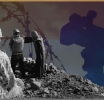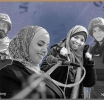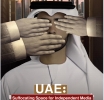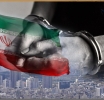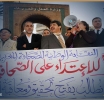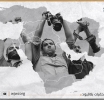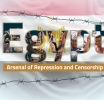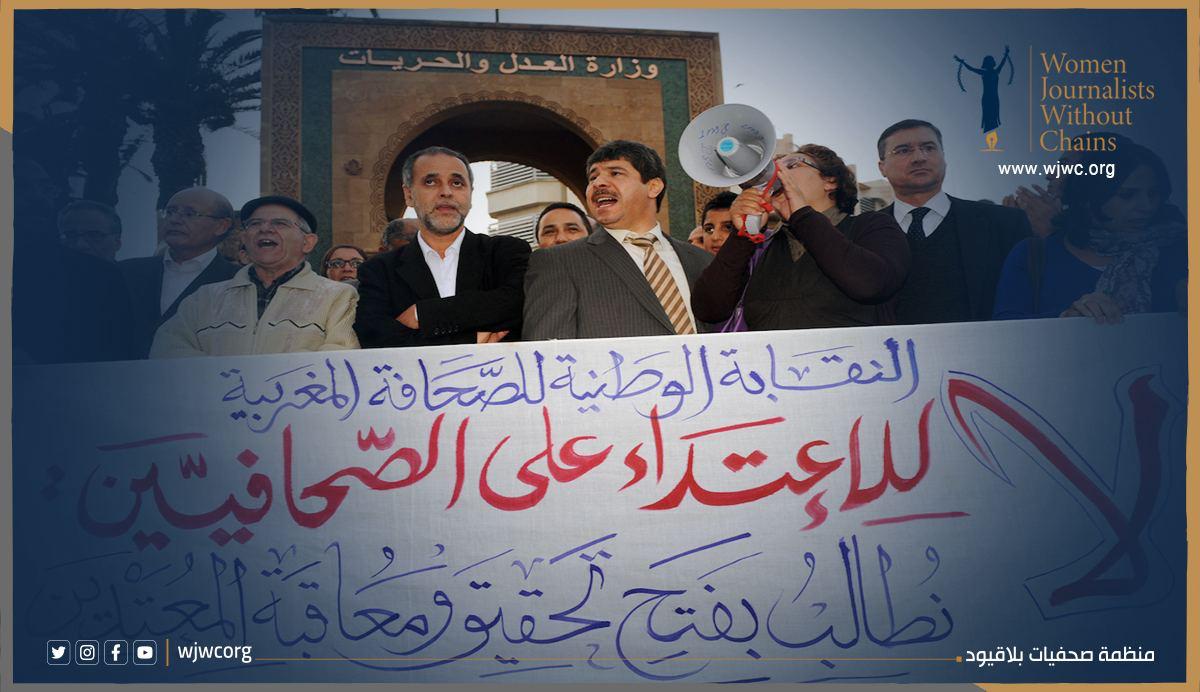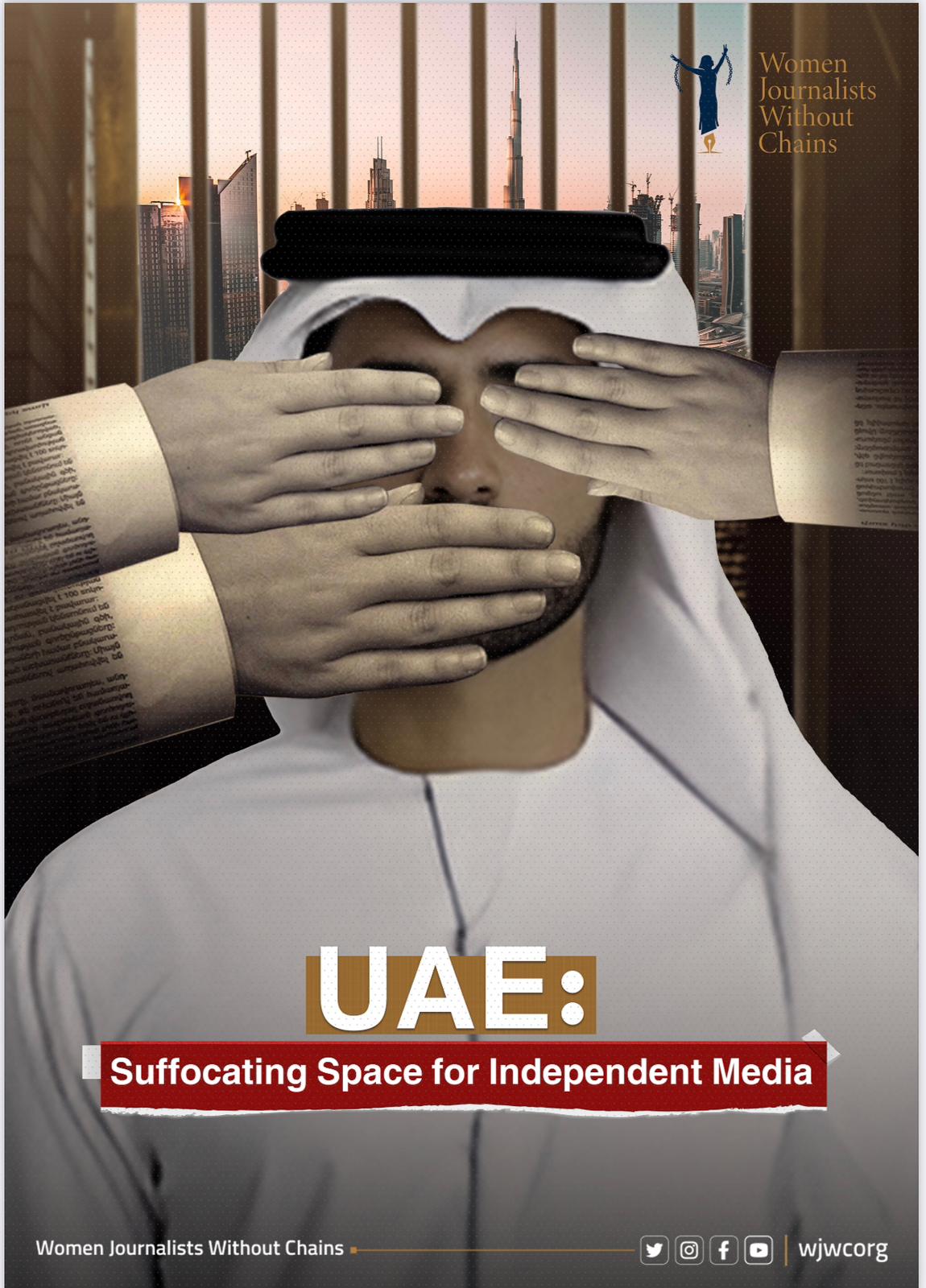Morocco has made significant legislative and legal progress over the past decade in advancing freedom of the press and expression in the country. This includes the adoption of a new constitution in 2011, which guarantees freedom of thought, opinion, and expression in all its forms, and protects the press from any restrictions. Additionally, a new press and publication law was enacted in 2016, which abolished prison sentences in opinion cases and ensured the protection of sources. A National Council for the Press was also established in 2018 as an independent institution responsible for self-regulating the press and publishing sector, and electing its leadership.
In recent years, Morocco has experienced a worrying decline in press freedom, with criminal law now being utilized to pursue journalists instead of the Press Code. Once-minor offenses now incur severe punishments, such as incarceration and harassment at work. Trials last year revealed that the government was accusing independent journalists of being biased and using their influence in the media to sway public opinion. In addition, the government is attempting to change the National Press Council's legislative framework, removing its ability to vote and turning it into a body that targets and supervises journalists, undercutting significant advancements in press freedom.
This report delves into the state of press freedom in Morocco, shedding light on two crucial components: the legal landscape, political trials, and the National Press Council's status; and the employment of pro-government media and journalists to manipulate and smear independent journalists, colloquially known as the "makhzen." By examining these facets, this report provides a comprehensive understanding of the challenges facing press freedom in Morocco today.
1- Journalists Are Monitored Under Criminal Law, Not Press Code
After adopting a new press law in 2016 that abolished jail time for journalists, the government still prosecutes independent media and reporters using criminal statutes. Public prosecutors usually file charges against journalists instead of following the Press Code.
Morocco rejects calls to stop these criminal prosecutions for activities that should fall under press freedoms. This causes concern for journalists and human rights groups. These worries predate the 2016 Press Law, especially due to ambiguous language linking the Press Code and criminal law.
While the Press Law stated in Article 17 that other laws would not apply, it did not explicitly protect journalists from criminal prosecution for publishing activity. The broad wording left room for the Press Code and criminal law to overlap in publishing cases. This maintains criminal penalties for journalists in Morocco.
After the introduction of the Press and Publication Code, Moroccan journalists who were critical of the government were singled out by new forms of repression, leading to their criminal prosecution. This took place in the years following the code's introduction.
2- Morocco's Press Council Extension Raises Independence Concerns
When the legal mandate of Morocco's National Press Council was set to end in October last year, there were worries about the government's intentions. Instead of holding elections for a new council, the government chose to extend the existing council's term for only six months until April 4 of this year. This decision sparked doubts about the council's independence and the government's commitment to a free press.
The extension of the Press Council's term exposed flaws in the legal framework and internal processes by not including measures for such situations when members are not elected on time. The extension highlighted the significant disagreements between the Council's components, namely the journalist and publisher organizations, which led to the failure to hold elections. It appears that the government intends to establish a committee to control the media and increase censorship.
The National Press Council's mandate was extended by six months to facilitate the election of new council structures, but during that period, the Ministry of Youth and Culture drafted a new law that curtails press freedom in Morocco. Instead of following the bylaws and holding elections for a new council, the ministry formed an interim committee to achieve this goal.
The Moroccan parliament is planning to discuss draft law No. 15:23, which establishes a temporary committee to oversee the press and publishing sector. The government approved the draft law in mid-April 2023, and it is scheduled to be discussed in the spring. Under the proposed law, the temporary committee will function for two years and be led by the current figures in the Council's Presidency, rejecting the possibility of holding elections.
Instead of canceling the National Press Council and replacing it with appointments, it would be more appropriate for the government and the Council to engage in a dialogue with journalists and professionals to identify and resolve the issues within the Council. This process should aim to develop a law that is in line with the Moroccan constitution, international human rights conventions, and global best practices for self-regulatory bodies in the journalism profession. It is crucial to preserve the journalists' right to self-regulate their profession through the Council and maintain the democratic process for electing the Council's presidency.
Women Journalists Without Chains (WJWC) conducted an analysis of Law No. 90.30 establishing the National Press Council as well as the new draft law proposing amendments to the National Council's legislation. The draft law was later withdrawn from Parliament but is expected to be reintroduced in the spring session.
The organization concluded in its analysis that the new draft law would represent a setback and detriment that contravenes the Moroccan Constitution, which guarantees the right of associations, including trade unions and councils, to self-govern in a democratic and autonomous manner (Article 135 of the 2011 Constitution of Morocco). The organization also identified several issues within the new draft law, which it outlines as follows:
- The project would grant the interim committee all disciplinary, arbitration, and rehabilitative powers of the Council, as well as the authority to grant and revoke press cards, powers previously held by five committees;
- An interim committee is not suited to replace an elected body with legal status. An interim committee cannot legally: draft bills or proposed laws, as such proposals have specific legal procedures and requirements.
- According to the new draft law, a temporary committee will be established to replace the organs of the National Press Council. This committee will serve for two years unless new members are elected during this period. The draft law mandates that the committee be made up of the former Presidency of the Council, but it excludes two committees whose presidents belong to the Moroccan Federation of Newspaper Publishers. Additionally, the representative of the Moroccan Labor Union, who was the head of the list of representatives of journalists in the previous elections, has also been excluded. These two organizations were the only members demanding the re-election of representatives to the council, while others opposed it. Moroccan journalists have accused the Minister of Youth, Culture, and Communication of wanting to keep these figures on the committee because they are his friends and are close to the authorities.
- The new law, with its amendment to Article 4, has veered away from the principle of election and instead embraced the royal appointment principle. The King will appoint the President of the Council for a period of five years with the possibility of renewal. The President will enjoy immunity from removal, even if they commit violations, according to the amendment to Article 12. Moreover, the President cannot be arrested, not even by a majority decision, as per the amendment to Article 13. These changes hint at the committee's intentions to become entirely subservient to the government. By replacing the election principle with appointment, the press, one of the pillars of democracy, is being dealt a severe blow. This move sends a negative signal and creates an unhealthy situation for the Moroccan press, which is already battling significant challenges.
- According to (amendment to Article 3), the Council monitors and keeps track of what foreign organizations write about Morocco and reacts to them about global press freedom reports. The council's mandate to submit an annual report "on indicators of respect for freedom of press practice and on violations and breaches of this freedom" has been removed from the new amendment and has been replaced with the obligation to prepare an annual report on "the conditions of the press and journalists in Morocco"; these are two distinct responsibilities.
- The establishment of the council and associated observatory to monitor journalists' social media and online activities, under the guise of ensuring compliance with the profession's code of ethics, could enable the government to surveil and target journalists with spurious accusations. While the council purports to provide support to journalists, the creation of mechanisms to track journalists' "actions that may constitute a violation of the profession's ethical code" suggests the potential for abuse and infringement of press freedoms. Given the vague definition of ethical violations, the observatory could be deployed as a means of intimidating journalists and suppressing critical reporting, contrary to the council's purported role of serving journalists' interests.
- According to Article 34 of the amendment, the Council would also "move urgently to address issues that constitute harm of responsibility towards society." The phrase "responsibility towards society" is vague and open to interpretation. It subjects journalists to government interrogation through the Council, poses a risk to the survival of independent journalism that exposes corruption, nepotism, and other matters of public concern, and may result in the suspension of their press licenses.
- The committee has the authority to summon any journalist or media outlet that has been complained about, even before receiving the report on the complaint in a legal form. This could happen even if the complaint doesn't involve a legal violation. The council can summon the journalist or media outlet at any time, as stated in Article 38 of the amendment. In other words, the council has the power to call in journalists or media outlets for questioning, regardless of whether or not there is a legal basis for the complaint.
The power to strip a journalist of their professional license rests with the Council, and the penalties for warning and reprimand have been given the boot from the list of disciplinary measures. The fine for transgressions has been doubled, now ranging from 10-100 thousand dirhams instead of the previous 5-50 thousand dirhams. The updated Article 42 now boldly declares that the government will halt all financial support to the publishing institution, rather than merely suggesting it.
There is no right of appeal for the fines levied on journalists and publishing companies! This is unexpected because it alludes to a security authority rather than a council to control the media. Any punishment or sentencing must be preceded by an appeal to the media for additional details.
- Trials
The Moroccan judiciary appears to function as an extension of the executive branch, pursuing criminal charges against journalists instead of using the proper press laws. The arbitrary imprisonment of journalists for their work increased alarmingly in 2022, and personal surveillance and content filtering strategies were also put into practice. Those who criticize the Moroccan government have experienced court harassment and have had sex-related charges used against them. Unfortunately, these journalists did not receive fair trials, and the judges used tabloid and pro-government media pieces to prove their guilt.
According to the monitoring unit of Women Journalists Without Chains, at least 21 journalists were subjected to violations in Morocco throughout 2022, including two women. The violations included arbitrary arrests, detention, and harassment. Three journalists, Omar Al-Radhi, Suleiman Al-Raysouni, and Tawfiq Bouachrine, remain imprisoned for their critical reporting on the Moroccan government. It is worth noting that some of these cases involve particularly concerning issues as follows:
- Accusations unrelated to journalistic work: the Moroccan government has imprisoned numerous journalists and handed down severe sentences, some up to 15 years long, on charges that have nothing to do with their journalistic work. These charges include allegations of "indecent assault" and "espionage," which are completely unrelated to their profession. The government is accusing these journalists because they have been critical of the government and have been practicing their journalistic work in a peaceful manner. This is a harmful tactic being used to silence journalists and prevent them from carrying out their important work.
Omar Al-Radi, a 33-year-old investigative journalist, was sentenced to six years in prison in March 2022 on charges of espionage and indecent assault. Al-Radi is known for his work exposing state corruption in the natural resources and real estate sectors. His trial was described by his defense team as "absurd" and "surreal," with a lack of fair trial conditions. Al-Radi was arrested in July 2020 and remained in pretrial detention for a year before being convicted.
Al-Radi was gradually lured into a trap by the Moroccan government. He was subjected to marathon interrogations about his journalistic work, and his phone was hacked using the Israeli "Pegasus" program. This allowed the government to eavesdrop on his conversations and gather evidence against him. Al-Radi was then prosecuted on a list of charges that were designed to silence him. These charges included "harming state safety," "communicating with agents of a foreign country," and "rape." Al-Radi has previously been convicted, tried, and imprisoned for posting a tweet, and he has been subjected to a massive defamation campaign by pro-state media.
In February 2022, journalist Suleiman Raissouni, who wears the hat of editor-in-chief of Akhbar Al-Youm newspaper, was slapped with a five-year prison sentence for alleged "sexual assault" against a young man, which was upheld by the Casablanca Court of Appeal. Raissouni, aged 49, who is known for his critical editorials of the authorities, stood his ground and claimed his case was politically motivated, while the complainant maintained his story.
The proceedings against Raissouni were riddled with irregularities, including inconsistencies in the plaintiff's testimony, the court's refusal to allow witnesses for Raissouni's defence, and the inadequacy of evidence presented by the complainant's legal team. In 2022, Raissouni went on a 16-week-long strike, during which he cut off communication with his family, to protest against his deprivation of various rights, such as writing.
On the 25th of October 2019, the Casablanca Court of Appeal rendered a verdict of 15 years imprisonment to Taoufik Bouachrine, the founder of the independent newspaper "Akhbar Al-Youm," following the increase of his sentence from 12 years, which had been previously handed down by a court of first instance in 2018.
In addition to the custodial sentence, Bouachrine was also ordered to pay millions of Moroccan dirhams (equivalent to 250 thousand euros) as fines and compensation to the complainants. The charges against him included allegations of rape, attempted rape, and sexual assault. Despite the allegations, Bouachrine's legal counsel has maintained that his client's conviction was founded on fabricated evidence and that the trial was politically motivated. Furthermore, former Moroccan Prime Minister Abdelilah Benkirane expressed his belief that Bouachrine was targeted for his editorial content rather than the alleged offenses.
The Moroccan authorities assert that the trials of the accused journalists are not predicated on their professional work. Instead, the government has leveled accusations of an immoral nature against these journalists, with the intended effect of discrediting them within Moroccan society, which is widely considered to be conservative, and of intimidating other journalists who may be inclined to critique government officials, including the king and his inner circle. Additionally, by making these baseless accusations, the government appears to be seeking to diminish the accused journalists' prospects for professional support, both domestically and internationally, as the allegations are not related to their journalistic activities.
The detention of the journalists and accusing them of "immoral" charges goes against local and international laws and norms. This detention, which is arbitrary, violates Articles 9, 14, and 19 of the International Covenant on Civil and Political Rights, which Morocco has ratified. As a signatory to the Covenant, Morocco is required to adhere to these articles.
As of July 2022, an investigation conducted by Human Rights Watch scrutinized several trials in Morocco and concluded that dissidents, their associates or relatives were found guilty of charges that violate internationally recognized human rights. In cases where the charges were legitimate, the conviction was based on illegal proceedings, which breached several fair trial guarantees. Some of the procedural flaws identified included prolonged pretrial detention without a justified reason, denial of access to the case files for extended periods, refusal of defense requests to question witnesses, and giving sentences in absentia to imprisoned defendants when the police failed to bring them to court.
- Targeting Civil Society: The case of Maati Monjib and his colleagues serves as evidence of the authorities' emphasis on targeting journalists and civil society organizations. The Court of Appeal in Morocco repeatedly rescheduled the sessions for Monjib's trial, along with six other defendants, in a 2015 case, summoning them for trial approximately ten times from April 2021 to December 2022. The reason for the delay was the absence of three defendants who were in exile, namely journalists Hisham Al-Mansouri, Abdel Samad Ayyash, and Hisham Kharbishi. This resulted in the postponement of the first instance trial about 33 times since 2015. In January 2021, Monjib and the other defendants were convicted of several charges, including "receiving funds from a foreign organization to harm Morocco's internal security." The case was based on a grant from a Dutch NGO to the Moroccan Association of Investigative Journalism, which Monjib and other activists had established to organize training on a citizen journalism app.
- Basic criticism is being criminalized in Morocco: The authorities are using the criminal law to condemn such forms of criticism against government officials or agencies. Saida Al-Alami, a human rights activist from the group "Moroccan Women Against Political Detention," was one of those affected. In April 2022, the Court of First Instance in Casablanca convicted Alami of insulting a law-regulated body, public officials, contempt of judicial decisions, and disseminating false information with the intent to defame others, sentencing her to two years in prison and a fine of 5,000 dirhams. Later in September 2022, the Court of Appeal in Casablanca increased her prison sentence from two to three years."
Since last year (2022), journalist Hanan Bakour's case has been ongoing in court, where she faces the charge of "broadcasting and distributing false allegations and facts using information systems with the intent of affecting people's private lives or defaming them." Bakour, the former director of the Moroccan website "Al-Youm 24," is being tried for a Facebook post in which she expressed surprise at the election of a head of the Guelmim-Oued Noun district council while the leader of the Socialist Union Party, Abd al-Wahhab Belfkih, was in critical health condition.
Journalists and bloggers in Morocco are facing imprisonment for allegedly violating the duty of reverence and respect for the Kingdom's supreme constitutional institution. In June 2022, the Court of Appeal in Al Hoceima upheld the preliminary ruling issued in April 2022 against blogger and activist Rabih Al-Ablaq, sentencing him to four years in prison and a fine of twenty thousand dirhams. The charges against him involved the use of electronic means to broadcast content that was deemed disrespectful towards the institution.
4- Defamation of "Makhzen" media:
Journalists in Morocco are increasingly worried about being accused of defaming the "Makhzen" media - a term that refers to the network of power-holders connected to the king and his associates through loyalty and nepotism. As a result of this climate of fear, journalists are more concerned about defamation than the possibility of arrest. The authorities are not satisfied with merely issuing political judgments against critical journalists; they are also conducting a campaign of defamation aimed at morally executing them. This is carried out through media trials, using the media machine that is closely aligned with both security and government agencies. It seems that the authorities are using every available means to repress dissent and criticism, including through the manipulation of the media.
Independent journalists, critics, and political opponents, including those who have been subject to unfair judicial rulings, are systematically targeted by media outlets owned by the "Makhzen". Before their trials and access to the judicial system, these media outlets conduct a "moral execution" campaign that not only targets the journalists but also their families, relatives, and friends. This campaign involves branding them as traitors, which is then used to justify the judgments issued by the judiciary. The defamation of journalists such as Al-Radhi, Al-Rasiouni, and Maati Monjib persists to this day.
Security authorities and Makhzen media resort to disturbing methods like "spyware", "live surveillance", and covertly installed cameras in homes and workplaces to launch malicious campaigns against independent journalists and government critics. These tactics are even extended to defame the families of these individuals. In addition, pro-Makhzen media outlets specialize in generating a continuous flow of articles that criticize Makhzen and government critics, including those who express support for arrested journalists. These articles frequently contain offensive language, reveal personal information such as bank and property records, expose private electronic conversations, make accusations of sexual relationships or threats to disclose them, and divulge intimate details about the targets' families, relatives, and supporters.
For example, when a woman expressed her support for journalist Suleiman Raissouni on Facebook, Makhzen media responded by revealing her parents' names and political affiliations, as well as information regarding her social circle and meeting places. This act was likely intended to intimidate her by demonstrating their knowledge of personal details, even though the information was not particularly sensitive. Similarly, the same media outlet disclosed the identity of Omar al-Radi's roommate and insinuated that she had been involved in dishonest activities.
Numerous freelance reporters contend that "the prospect of becoming a target for news outlets and media connected with the concealed establishment deters them from criticizing or voicing their viewpoints, even if the issue will not reach the courtroom."
According to Monjib, a modern Moroccan history expert, the current situation in Morocco is "worse than during the years of bulltes." However, throughout those years, political parties ventured to oppose and labor unions staged public demonstrations. Since the opposition and critical voices act as "warning sensors" that alert people to oncoming disasters, the regime's current efforts to silence everyone endanger both them and their own existence.
The Moroccan government has a history of silencing dissent, even from journalists who are outside the country. In February 2022, the official Moroccan news agency, MAP, published an article criticizing Javier Otazo, a former Spanish journalist who had written a book critical of the Moroccan government. The article accused Otazo of being "drowned in hatred of Morocco" and of being motivated by bitterness over his divorce from a Moroccan woman. The article was widely condemned by journalists and human rights groups, who accused the Moroccan government of using MAP to intimidate and silence critics. In conclusion, Morocco has made significant progress in terms of press and publication freedom over the past 10 years. However, recent court cases and trials suggest that this progress is being undone by the country's authorities. Journalists must work together to stop this systematic attack on their freedom and to defeat the pro-government media apparatus that is spreading threats and treason.
RECOMMENDATIONS:
To the Government of Morocco
- Unconditionally and immediately free all journalists and human rights advocates who were detained while performing their duties. Make sure of their wellbeing, safety, and health. Give them free rein to carry out their trade.
- Adhere to the Moroccan constitution's provisions protecting freedom of the press, expression, and opinion. Ensure that all legislation and regulations follow global human rights norms.
- Update the Press and Publication Code to conform to international norms, particularly as it relates to journalist prosecution.
- Discontinue any plans that may jeopardize the constitutional protections for freedom of thought, expression, and association.
- Create a separate system to shield journalists from harassment, abuse, and snooping. Make sure they can perform their duties fearlessly.
- Expand the function of public media so that it promotes the general welfare rather than the interests of any one individual or organization. The goal of public media should be to inform, enlighten, and educate the public so that they can make informed opinions on any topic.
To the Moroccan Parliament
- The press and Parliament should work together to defend people's rights, ideologies and access to information to form diverse perspectives.
- Reject the law creating an interim committee to lead the National Press Council. Insist the Council perform its duties by holding elections as stipulated in its bylaws. Ensure the Council has independence to protect journalists.
- Amend laws to close loopholes the government uses to target independent journalists. Move criminal charges related to publishing from the Criminal Code to the Press Code once it is reformed.
- Pass regulations that protect journalists' ability to rely on primary sources for information and facts while doing their jobs.
To download the report as a pdf, click here
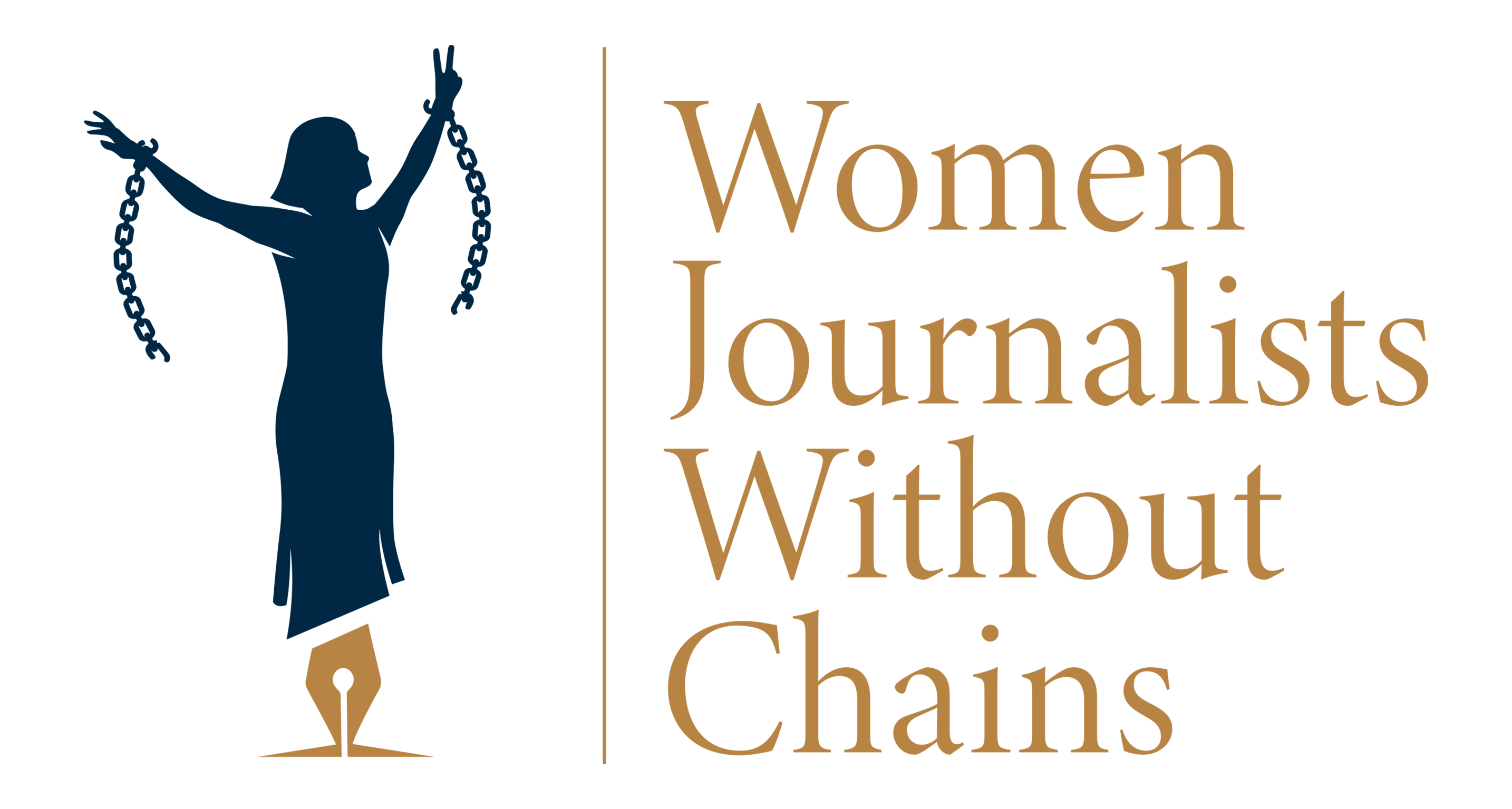
 En
En  Ar
Ar 